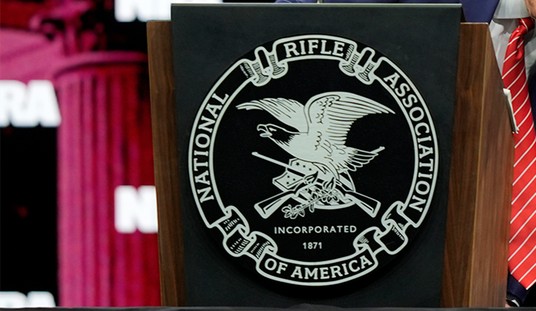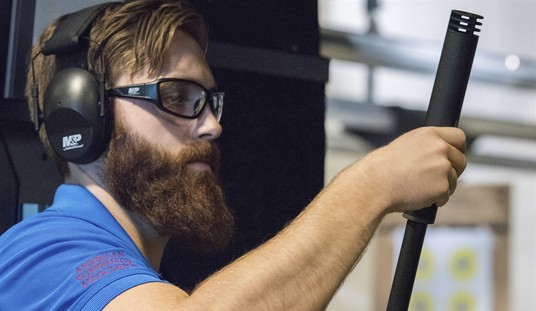Sunday evening we posted a relatively famous talk given by Peter van Uhm, chief of defense for the Netherlands, in which he explains why he “chose the gun” as his tool of choice to make the world a better place.
van Uhm is a good man, and I suspect that most of of you were nodding along with his line of thought, until he got to the portion of his talk where he began talking about the importance of the government having a monopoly on force in a democratic society.
It’s an alien mindset to those of us here in the United States, who instinctively know that a government monopoly on force—democratically elected or otherwise—is a nightmare scenario, ensuring that the ever-corrupting forces of government will one day turn citizens into subjects, and eventually, subjects into victims. The 100+ million broken bodies buried in mass graves around the world just in 20th century democides silently scream out their protest against governments having a monopoly on the use of force with modern arms.
A disarmed society is a genocide in waiting. Only in a society where the citizenry has enough arms of military utility to pose a credible threat to the government is there the possibility of long-term domestic peace.
Put bluntly, those that seek to disarm the citizenry are doing so to the detriment of the country. Whether they are doing so out of ignorance or purposeful intent is only a matter of academic curiosity. In the end, both types of prohibitionists have the same deadly, misguided view that they can control evil, and instead enable it.
The always excellent Daniel Greenfield dismantles this deranged belief—the beleif that evi lconbe controlled by controlling guns—in his essay, Government Power and Evil.
Here’s but a small taste of an essay that I suggest you real in full.
Gun control does not control guns, it gives the illusion of controlling people, and when it fails those in authority are able to say that they did everything that they could short of giving people the ability to defend themselves.
We live under the rule of organizers, community and otherwise, committed to bringing their perfect state into being through the absolute control over people, and the violent acts of lone madmen are a reminder that such control is fleeting and that attempting to control a problem often makes it worse by removing the natural human crowdsourced responses that would otherwise come into play.
People do kill people and the only way to stop that is by killing them first. To a utopian this is a moral paradox that invalidates everything that came before it, but to everyone else, it’s just life in a world where evil is a reality, not just a word.
Anyone who really hankers after a world without guns would do well to try the 12th Century which was not a nicer place for lack of guns. The same firepower that makes it possible for one homicidal maniac to kill a dozen unarmed people also makes it that much harder to recreate a world where a single family can rule over millions and one man in armor can terrify hundreds of peasants.
Putting miniature cannons in the hands of every peasant made the American Revolution possible. The ideals of the Declaration of Independence and the Constitution would have meant very little without an army of ordinary men armed with weapons that made them a match for the superior organization and numbers of a world power.
Would Thomas Jefferson, the abiding figurehead of the Democratic Party, who famously wrote, “The tree of liberty must be refreshed from time to time with the blood of patriots and tyrants”, really have shuddered at the idea of peasants with assault rifles, or would he have grinned at the playing field being leveled?
But the Democratic Party is no longer the party of Thomas Jefferson. It’s the party of King George III. And it doesn’t like the idea of armed peasants, not because an occasional peasants goes on a shooting spree, but because like a certain dead mad king who liked to talk to trees, it believes that government power comes before individual liberty. Like that dead king, it believes that it means this for the benefit of the peasants who will be better off being told what to do.
The question is the old elemental one about government control and individual agency. And tragedies like the one that just happened take us back to the equally old question of whether individual liberty is a better defense against human evil than the entrenched organizations of government.
Do we want a society run by kings and princes who commit atrocities according to a plan for a better society, or by peasants with machine guns? The kings can promise us a world without evil, but the peasant with a machine gun promises us that we can protect ourselves from evil when it comes calling.
We serve no kings or would-be tyrants in this Republic, and we owe no allegiance to those who would disarm us.








Join the conversation as a VIP Member